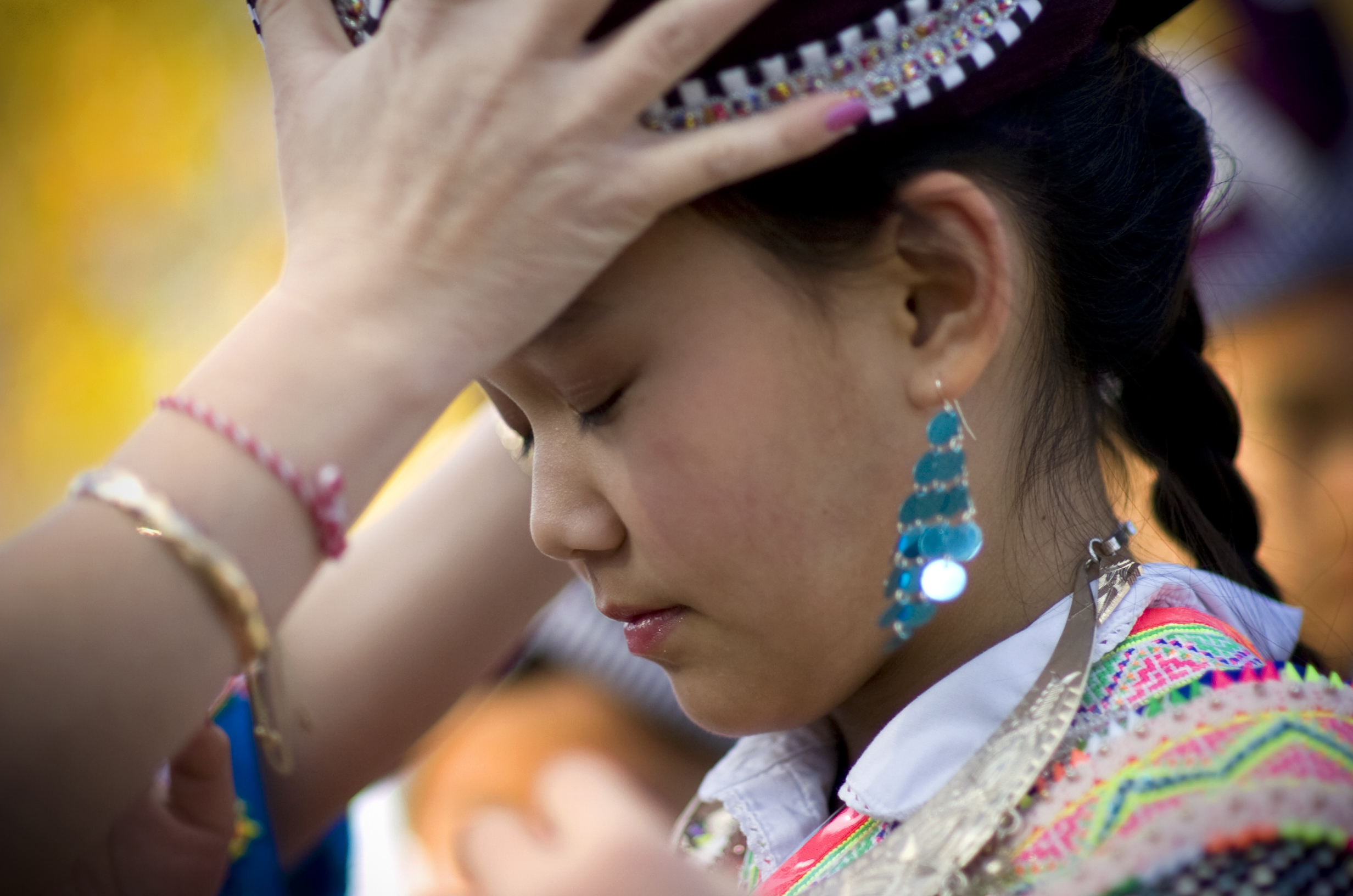In the heart of Big Bar, in rural Trinity County in Northern California, the Nor Rel Muk Wintu Nation continues to deepen its connection to ancestral lands and traditions through the Wintu Educational and Cultural Council. Established by the tribe in 1961, the Council became a nonprofit in 2012 and is dedicated to sustaining and sharing Wintu culture with younger generations and the broader community.
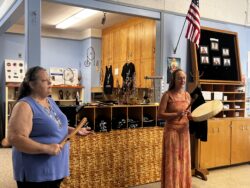
The Wintu Educational and Cultural Council is committed to keeping the cultural heritage of the Nor Rel Muk Wintu Nation alive and thriving. Their work emphasizes traditional lifeways, food sovereignty, and stewardship practices as essential to sustainability—not just for their tribe, but for the broader community and environment. Through cultural events, K–12 presentations, and workshops, their skilled artist-teachers share the knowledge and techniques passed down from their elders.
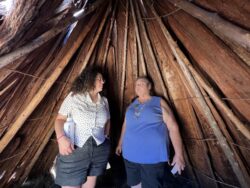
With support from ACTA’s Living Cultures Grant Program, the Council established the Wintu Cultural Center and Gift Shop at the tribal offices—a welcoming space where Wintu artists share their skills, techniques, and teachings. The Center functions not just as a venue for artist work and exhibition, but as a hub for cultural education and interpretive demonstrations that are vital to community engagement with Wintu heritage.
During ACTA’s visit in July 2024, Tracy Foster-Olstad, Chair of the Council, guided us through their new acorn processing site—an extension of the cultural education work happening at the Center. There, they teach traditional methods of turning acorns into flour, a practice deeply tied to the Wintu’s relationship with the land. This work, supported by ACTA, reflects the Wintu’s ongoing commitment to reconnect with ancestral practices that promote health and cultural resilience.
“It’s very important to let people know that we do still exist—we are still here.”
—Tracey Foster-Olstad
Chair of the Wintu Educational and Cultural Council
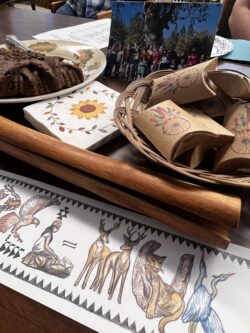
Tracy emphasized how critical it is to reclaim these lifeways, especially in the context of Native communities who have endured centuries of violence and active efforts to erase and invisibilize their culture and peoples. “It’s very important to let people know that we do still exist—we are still here,” she told us.
Their rich cultural work not only revitalizes their culture, but also creates space for individual members and the community as a whole to heal from trauma. Tracy’s own journey is a testament to this: reclaiming knowledge that was once shamed or hidden has been part of her personal healing. “What I’m doing is about making my grandmother proud,” she said. These efforts underscore how traditional arts can be both an anchor and a path to healing—for individuals and entire communities.

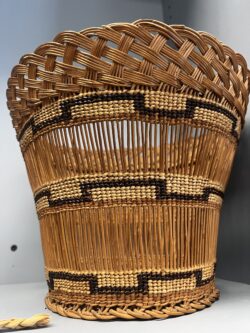
Passing this knowledge on is essential. Local students have participated in acorn processing workshops, learning firsthand about the connection between land, food, and identity. Tracy shared how acorns once sustained her ancestors when other food sources were scarce—and how acorns remain a deeply nourishing traditional food. Acorns are a powerful superfood, she noted, rich in vitamins and minerals and abundant in the local landscape of Big Bar, CA.
The Council’s vision is not only cultural but economic. In a county where nearly 20% of residents live below the poverty line, the development of their acorn flour mill offers a pathway toward food sovereignty and economic resilience. The mill will allow the community to produce acorn-based goods for market, creating jobs and new sources of income for tribal members.
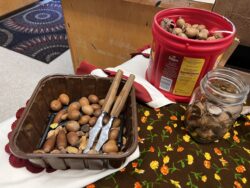
Their educational work has also caught the attention of local institutions. The Trinity County Office of Education recently invited the Council to create a K–8 curriculum on traditional acorn processing. The Council also published a beautifully illustrated children’s book, Seasons of the Oak, which teaches about the oak tree’s life cycle and includes a glossary of Wintu language terms—supporting their broader goal of language revitalization. Documenting and teaching their language is crucial to ensuring that Wintu oral traditions continue to be passed down.
Community events are another cornerstone of the Council’s work. Their harvest ceremony, heritage day, annual gathering, and salmon festival are opportunities for both tribal members and neighbors to come together. These events feature interpretive demonstrations, traditional foods, crafts, drumming, dance, and Wintu language—nurturing cross-cultural understanding and strengthening ties with other tribes and local communities.
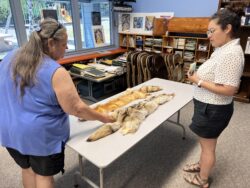
Navigating relationships with government agencies is also part of the Council’s ongoing work. After the federal government terminated the tribe’s status in the 1950s, they have advocated tirelessly for decades to regain federal recognition—a crucial step in accessing resources and securing sovereignty. One vision that hinges on this recognition is the creation of a home for elders and foster youth in their community.
Their evolving relationship with the U.S. Forest Service is one example of a shift in federal recognition of indigenous knowledge: once a force of cultural suppression, the Forest Service now looks to the Council for guidance on practices like cultural burning—an approach rooted in Indigenous knowledge that is urgently needed in wildfire-prone California and finally appreciated. The forest service now looks to the tribe and Council for guidance on long-term care of the local forests.
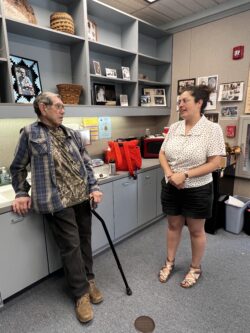
The Wintu Educational and Cultural Council is proud to share their traditions and wisdom not just within the tribe, but with anyone seeking deeper connection to land, health, and community. Supported by ACTA and grounded in the teachings of their elders, they are building a model for what cultural continuity and sustainability can look like. Whether through acorn processing, traditional crafts, language education, or land stewardship, they are demonstrating how ancestral knowledge can be a foundation for collective healing, mutual aid, and a future rooted in care.

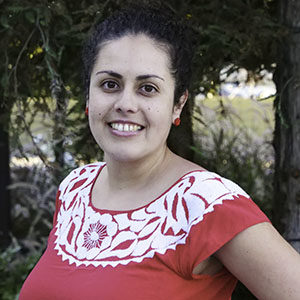 Betty Marín, Associate Program Director
Betty Marín, Associate Program Director

